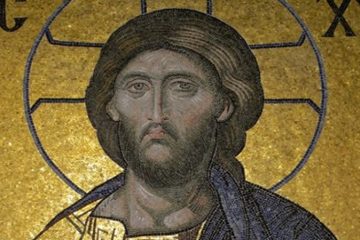Archimandrite Nikon Koutsidis
During the Divine Liturgy, just before the recitation of the Creed, the priest urges the faithful:
‘Let us love one another, that with one mind we may confess’.
Confess what? The people reply (through the singers):
‘Father, Son and Holy Spirit, Trinity consubstantial and undivided’.
In other words, our faith in the one true God, the Holy Trinity.
Therefore, a confession of faith without love isn’t pleasing to God.
***
At the same time, within the sanctuary, the priests are embracing, kissing each other on the cheek and saying: ‘Christ is in the midst of us’. ‘He is and will be’. So He can see that we’re sincere in our expression of love, which is the embrace.
In former times, this embrace was also given outside the sanctuary, between the laity, again as an expression of love.
This relationship of faith in Christ and love is apparent in the life of the saints.
Who had the most vibrant faith in Christ? The saints. This is why they cared nothing about hardships, bodily discomfort, martyrdom or death.
Who had the greatest love for other people. Again, the saints. This is why they became sacrifices for others. Saint Agathon the Ascetic said, ‘I’d like to find a leper, take his ailing body and give him mine’ (Sayings of the Elders, Agathon, 26).
But since we’re people who are weak in the virtues (and in love!) we’re often swept along by our distress over the hurt someone’s caused us, perhaps by slanders going the rounds about us and we lose our love.
***
In these cases, let’s apply the advice of the saints, old and new:
If you feel bitter towards anyone who’s hurt you by word or deed, do the following:
1. Every night, in your evening prayers, say: ‘Lord Christ, have mercy (that is, ‘show your love’) first on him or her and then on me’.
2. Praise them with fine words in front of other people.
Then you’ll really find spiritual peace because you’ll be applying Christ’s commandment to imitate Him:
‘Be merciful, even as your Father is merciful’ (Luke, 6, 36).
Source: pemptousia.com




0 Comments